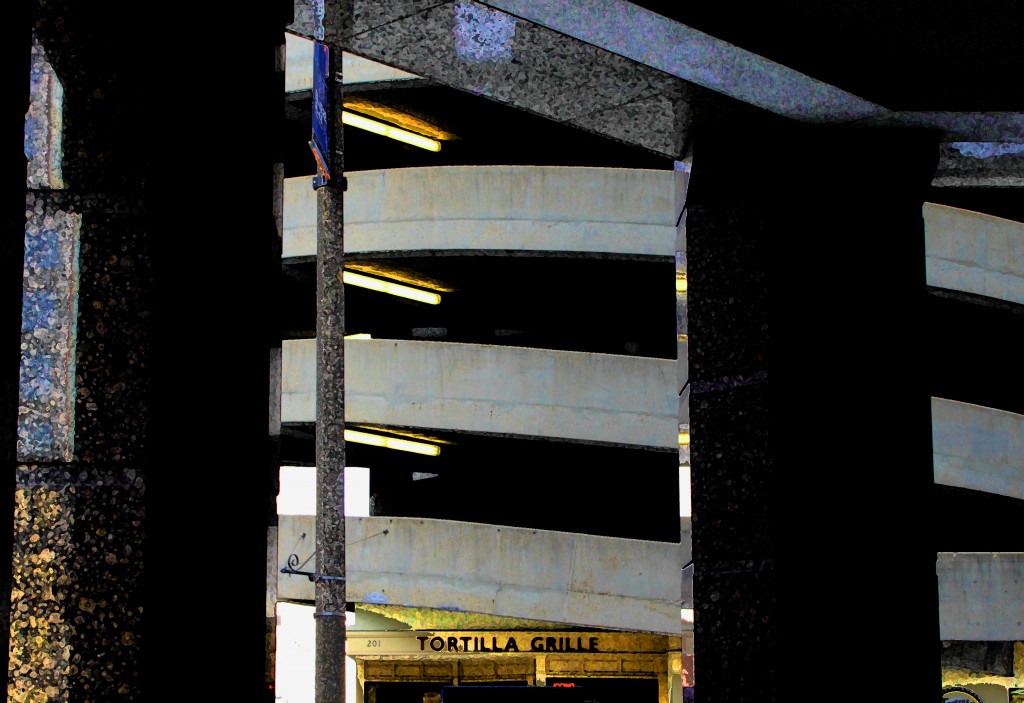Because I can’t resist the date.

This particular confluence of numerical coincidence won’t happen again this century. Proper appreciation must be shown.
Or, as Stephen Jay Gould once said, “I have always and dearly loved calendrical questions because they display all our foibles in revealing miniature. Where else can we note, so vividly revealed, such an intimate combination of all the tricks that recalcitrant nature plays upon us, linked with all the fallacies of reason, and all the impediments of habit and emotion, that make the fulfillment of our urge to understand even more more difficult…”
It is in our nature to reject coincidence as simply what it is, especially when it comes to cosmic events. Long ago human beings decided the devices we invented to keep track of time actually meant something to Time itself, as if the universe was somehow required to acknowledge our conceits.
Still, even as a purely invented coincidence, 12-12-12 is kind of cool. How many babies will be born today and be considered extra special just because? If someone happens to win a lottery today, the efficacy of numerically based sympathetic magic will be reinforced, even though it will still have exactly the same relationship as the odds of a coin face coming up with each of a hundred tosses as if the collective numbers of heads or tails somehow imposes necessity on each one (namely, zero).
On the other hand, any day you wake up with something to marvel on is a win, so I’ll take my small pleasures where I can.
I’ll be writing up a year-end assessment in a couple of weeks. Soon it will be 2013—a numerical change about as meaningful as today’s date in the greater scheme of anything. For instance, it is 2012 in our calendar system (Gregorian—the older Julian is similar, lacking but 13 days, which would make today the last day of November, with today’s numerically alliterative advent still to come) but 5773 in the Hebrew calendar. (A more concurrent calendar is the Holocene, which starts at the beginning of the Holocene Era—ours—by adding ten thousand years. So it’s 12012 H.E. I like that.)
It’s 1434 in the Islamic calendar. Sometimes I ponder the significance of time lapsed in cultural evolution to try to understand where a given institution is along the line. In this case, I remember where christianity was in 1400 when seeking to comprehend current attitudes and events. They were on the verge of the Reformation, with seething splinter groups roiling under the surface about to explode into a family feud they’re still trying to settle. Hm.
One of the youngest calendars is the so-called “Minguo” which is from the Republic of China (Taiwan) and dates from the founding of the Republic in 1912. Their centenary was just celebrated. It’s 101 in the ROC Minguo calendar.
We’re fortunate not be stuck using the Unix calendar, which is expressed in seconds.
The true measure of time is change. Change in the environment, certainly, but for our purposes, changes in ourselves. There is no calendar for such things. Some changes are temporary, some seasonal, others permanent. They may be profound or just occurrences that seem to have little import. It’s a question of where we’ve been and where we’re going.

It’s a common fallacy that our lives are telec, that they have a narrative structure, a beginning and an end in terms of purposes and goals. If they do, it is a fact that we impose such things, but we’re not born with them. (Born into them, perhaps, in the case of those who arrive swaddled in family expectations actively imposed.) We have a start and a finish, which is not quite the same thing. In between, it’s up to us to find meaning and purpose, make it out of whole cloth if we must, but waiting around for cosmic enlightenment to tell us what we’re here for invites a wasted life. In an attempt to impose structure and suggest meaning, humans have invented numerous things—like calendars, with attendant rituals and anniversaries. Out of the matrix of such things many of us find relevance among ourselves and that is not a bad thing at all.
In truth, each of us brings to such things what we have and are, whether we accept others’ definitions or not. I wish people Merry Christmas despite the fact that I impute no validity in the defining mythology, because Christmas is what we make it. I don’t have a lot of patience for people bent on souring everyone else’s holiday by indulging a political or theological hissy-fit—on either side of the Belief Divide. I have my own resonances with it and take pleasure from the memory and æstethic significance on which I accrued that meaning. I watch A Christmas Carol every year, drink egg nog, embrace my friends, and nurture a hearth-glow of fellowship. I do not have to accept the fables to experience a “holiday spirit” every bit as real as those who do—nor do I appreciate those who insist on dumping cynicism and political scatalogy onto the season in an attempt to ruin it for everyone else in a misguided pursuit of some adherence to reason. Truth and fact are often only coincidentally related, and the truth of the season is something greater than what is contained in the details of a given story.
The Gift of the Magi is my guiding narrative…for what it may be worth.
Happy Holidays, Merry Christmas, Season’s Wishes, etc etc etc.
Whatever calendar you use, have a good day.

Your fine essay makes me think of one of my favorite passages from Wordsworth’s Prelude (admittedly, ripped from context and not really representative of Wordsworth’s own view):
Not in Utopia,–subterranean fields,– 140
Or some secreted island, Heaven knows where!
But in the very world, which is the world
Of all of us,–the place where, in the end,
We find our happiness, or not at all!
(from Book 11 of The Prelude)
Well said, Mark. But one correction: The newest calendar is actually my own, the DarylGregorian. It started last Tuesday, when I found two pickles in my lunch. TWO.
I thought that was originally created by Archbishop Vlasik…